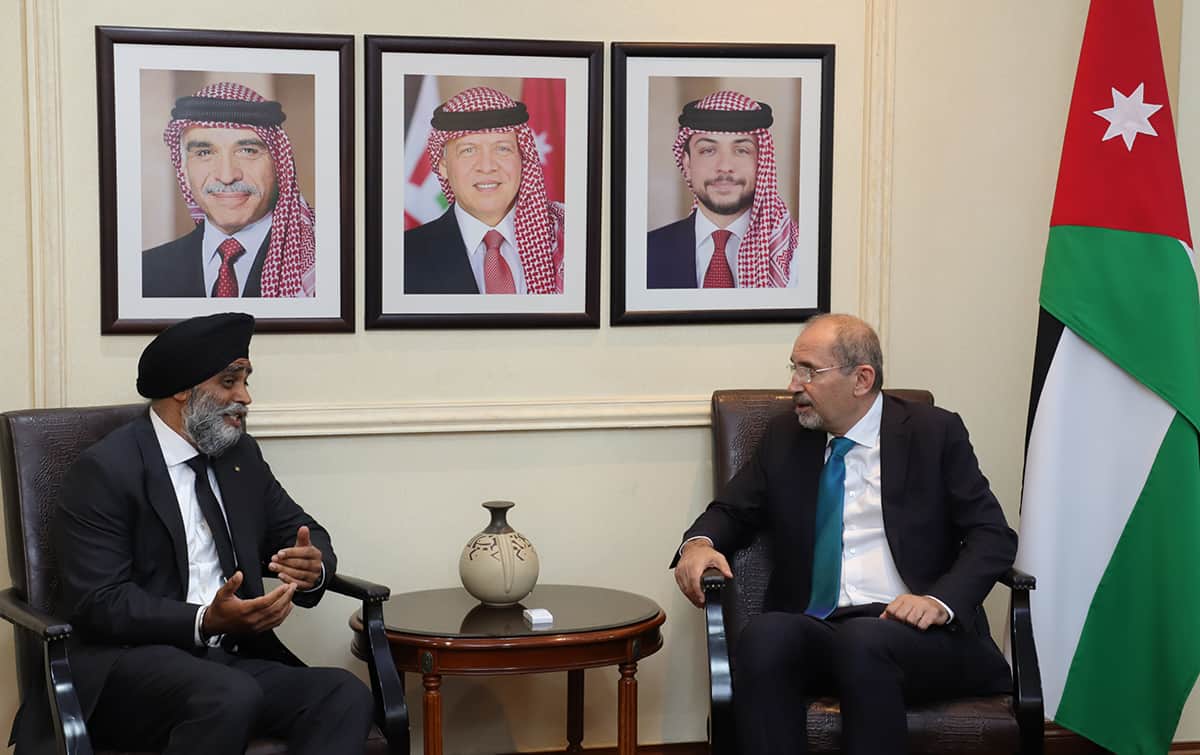Jordan and Canada discussed on Wednesday the opportunities to expand joint economic cooperation in agriculture, water, energy and trade areas, and benefit from Jordanian competencies in the Canadian labor market.
Meeting in Amman, Deputy Prime Minister and Minister of Foreign Affairs and Expatriates Ayman Safadi, and Canadian Minister of International Development Harjit Sajjan stressed “effectiveness” of coordination channels in the development fields and keenness to develop “strong” friendly relations between the two countries.
Safadi lauded Canada’s efforts to support the Kingdom’s development process and help Jordan face economic challenges and consequences of regional crises, especially the refugee-related burdens.
Thanking Canada for its support to the United Nations Relief and Works Agency for Palestine Refugees (UNRWA), Safadi stressed the need to continue providing the necessary assistance to enable the agency to carry out its duties, in accordance with its UN mandate.
The two ministers reviewed a number of regional and international issues of common interest and efforts to resolve the region’s crises, according to a Foreign Ministry statement.
Canada is currently implementing a slew of development projects in Jordan, in the energy, water, environment and education fields, through Sustainable Energy and Economic Development Project (SEED).
In 2012, the two countries signed a free trade agreement that facilitated trade exchange, which amounted to $106.7 million in 2020.








